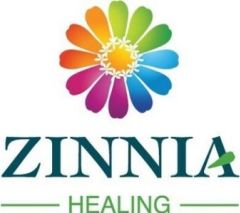






Zinnia Health Singer Island
Verified Center
This provider's information has been quality-checked by Recovery.com's Research Team for accuracy and completeness, including center verification through appropriate third-party organizations.
Treatment Focus
This center treats substance use disorders and co-occurring mental health conditions. Your treatment plan addresses each condition at once with personalized, compassionate care for comprehensive healing.
Primary Level of Care
Offering intensive care with 24/7 monitoring, residential treatment is typically 30 days and can cover multiple levels of care. Length can range from 14 to 90 days typically.
Treatment Focus
This center treats substance use disorders and co-occurring mental health conditions. Your treatment plan addresses each condition at once with personalized, compassionate care for comprehensive healing.
Primary Level of Care
Offering intensive care with 24/7 monitoring, residential treatment is typically 30 days and can cover multiple levels of care. Length can range from 14 to 90 days typically.
Provider's Policy
Zinnia Health Singer Island does not accept any in-network policies but we do also accept many out-of-network plans like UHC, UMR, Cigna, BCBS, Aetna, GEHA and more.
Zinnia Health Singer Island
Zinnia Health Singer Island
About Zinnia Health Singer Island
Zinnia Health Singer Island treats addiction and mental health with evidence-based and experiential therapies. They provide a continuum of care with detox, residential treatment, and alumni support. Clients can participate in a unique experiential recovery program, LIV, and enjoy the therapeutic benefits of nature and adventure.
In-Depth Clinical Care
Clients begin treatment with a psychiatric assessment before moving into detox, if needed. Zinnia Health Singer Island provides medication-assisted treatment (MAT) to ease withdrawal symptoms. Their psychiatrist meets with clients weekly if they’re using MAT during detox. Zinnia Health Singer Island monitors detox 24/7 with nursing staff, a physician, and counselors. Their nutritionist creates meal plans for each client, and helps them learn more about nutrition and healthy eating.
Evidence-Based Dual-Diagnosis Treatment
Zinnia Health Singer Island provides a variety of evidence-based therapies for addiction and mental health recovery. These include cognitive behavioral therapy (CBT), dialectical behavioral therapy (DBT), eye movement therapy (EMDR), equine therapy, family therapy, motivational interviewing techniques, relational therapy, and more. They treat addiction and mental health conditions simultaneously for comprehensive healing. Their trauma-based therapies help clients heal from trauma and post-traumatic stress disorder (PTSD). Zinnia Health Singer Island can also treat co-occurring depression, anxiety, and bipolar disorder.
Finding Adventure in Recovery
Clients at Zinnia Health Singer Island can join their LIV program, which takes clients on local outdoor adventures. Their other experiential activities include swimming in their on-site pool, on-site fitness, gaming in their gaming room, yoga, art and music therapy, and mindfulness. Zinnia Health Singer Island introduces clients to 12-Step recovery meetings and SMART recovery meetings, both of which clients can keep attending after treatment.
Center Overview
Treatment Focus
This center treats substance use disorders and co-occurring mental health conditions. Your treatment plan addresses each condition at once with personalized, compassionate care for comprehensive healing.
Joint Commission Accredited
The Joint Commission accreditation is a voluntary, objective process that evaluates and accredits healthcare organizations (like treatment centers) based on performance standards designed to improve quality and safety for patients. To be accredited means the treatment center has been found to meet the Commission's standards for quality and safety in patient care.

Insurance Accepted
Cash Pay Rates
Estimated Cash Pay Rate
Center pricing can vary based on program and length of stay. Contact the center for more information. Recovery.com strives for price transparency so you can make an informed decision.
Meet Your Care Team

Dr. David Hu
Vice President and Medical Director, Psychiatry

Willa Keel
Director of Nursing
RN

Katie Brussack
Clinical Director
LMHC, LPC

Leslie Jaworski
Assistant Clinical Director
MS, LMHC




Levels of Care





Your Care Options
Specializations
Personality Disorders
Personality disorders destabilize the way a person thinks, feels, and behaves. If untreated, they can undermine relationships and lead to severe distress.
Alcohol
Using alcohol as a coping mechanism, or drinking excessively throughout the week, signals an alcohol use disorder.
Drug Addiction
Drug addiction is the excessive and repetitive use of substances, despite harmful consequences to a person's life, health, and relationships.
Prescription Drugs
It's possible to abuse any drug, even prescribed ones. If you crave a medication, or regularly take it more than directed, you may have an addiction.
Post Traumatic Stress Disorder
PTSD is a long-term mental health issue caused by a disturbing event or events. Symptoms include anxiety, dissociation, flashbacks, and intrusive thoughts.
Who We Treat
Approaches
Evidence-Based
A combination of scientifically rooted therapies and treatments make up evidence-based care, defined by their measured and proven results.
Holistic
A non-medicinal, wellness-focused approach that aims to align the mind, body, and spirit for deep and lasting healing.
Personalized Treatment
The specific needs, histories, and conditions of individual patients receive personalized, highly relevant care throughout their recovery journey.
Therapies
1-on-1 Counseling
Patient and therapist meet 1-on-1 to work through difficult emotions and behavioral challenges in a personal, private setting.
Eye Movement Therapy (EMDR)
Lateral, guided eye movements help reduce the emotional reactions of retelling and reprocessing trauma, allowing intense feelings to dissipate.
Family Therapy
Family therapy addresses group dynamics within a family system, with a focus on improving communication and interrupting unhealthy relationship patterns.
Life Skills
Teaching life skills like cooking, cleaning, clear communication, and even basic math provides a strong foundation for continued recovery.
Medication-Assisted Treatment
Combined with behavioral therapy, prescribed medications can enhance treatment by relieving withdrawal symptoms and focus patients on their recovery.
Relapse Prevention Counseling
Relapse prevention counselors teach patients to recognize the signs of relapse and reduce their risk.
Twelve Step Facilitation
12-Step groups offer a framework for addiction recovery. Members commit to a higher power, recognize their issues, and support each other in the healing process.
Conditions We Treat
Grief and Loss
Grief is a natural reaction to loss, but severe grief can interfere with your ability to function. You can get treatment for this condition.
Personality Disorders
Personality disorders destabilize the way a person thinks, feels, and behaves. If untreated, they can undermine relationships and lead to severe distress.
ADHD, ADD
ADHD is a common mental health condition caused by dopamine imbalance. Common symptoms include inattention, hyperactivitiy, and impulsivity.
Anger
Although anger itself isn't a disorder, it can get out of hand. If this feeling interferes with your relationships and daily functioning, treatment can help.
Anxiety
Anxiety is a common mental health condition that can include excessive worry, panic attacks, physical tension, and increased blood pressure.
Bipolar
This mental health condition is characterized by extreme mood swings between depression, mania, and remission.
Codependency
Codependency is a pattern of emotional dependence and controlling behavior. It's most common among people with addicted loved ones.
Depression
Symptoms of depression may include fatigue, a sense of numbness, and loss of interest in activities. This condition can range from mild to severe.
Post Traumatic Stress Disorder
PTSD is a long-term mental health issue caused by a disturbing event or events. Symptoms include anxiety, dissociation, flashbacks, and intrusive thoughts.
Substances We Treat
Alcohol
Using alcohol as a coping mechanism, or drinking excessively throughout the week, signals an alcohol use disorder.
Benzodiazepines
Benzodiazepines are prescribed to treat anxiety and sleep issues. They are highly habit forming, and their abuse can cause mood changes and poor judgement.
Co-Occurring Disorders
A person with multiple mental health diagnoses, such as addiction and depression, has co-occurring disorders also called dual diagnosis.
Cocaine
Cocaine is a stimulant with euphoric effects. Agitation, muscle ticks, psychosis, and heart issues are common symptoms of cocaine abuse.
Drug Addiction
Drug addiction is the excessive and repetitive use of substances, despite harmful consequences to a person's life, health, and relationships.
Heroin
Heroin is a highly addictive and illegal opioid. It can cause insomnia, collapsed veins, heart issues, and additional mental health issues.
Methamphetamine
Methamphetamine, or meth, increases energy, agitation, and paranoia. Long-term use can result in severe physical and mental health issues.
Opioids
Opioids produce pain-relief and euphoria, which can lead to addiction. This class of drugs includes prescribed medication and the illegal drug heroin.
Languages
Aftercare
Care Designed for Your Needs
Personal Amenities
Amenities
Activities
Off-Site Amenities

What people are saying
Treatment
4.4
Accommodations
3.6
Food & Nutrition
4.3
Value
4.3
Pros
- Excellent & Effective Treatment Programming (2)
- Friendly & Competent Staff (2)
- Fun Activities (2)
- Access to Nature (2)
Ross Mould
Treatment in 2024 • (30 days) • Reviewed 03/12/24
Former Client
•Business Owner
Mack W.
Treatment in 2024 • (30 days) • Reviewed 04/12/24
Former Client
•Shipping and receiving
•Wisconsin
Josh
Reviewed 01/26/25
Review from Rehabs.com
Justin King
Treatment in 2021 • (90 days) • Reviewed 04/19/23
Former Client
•Health insurance agent





